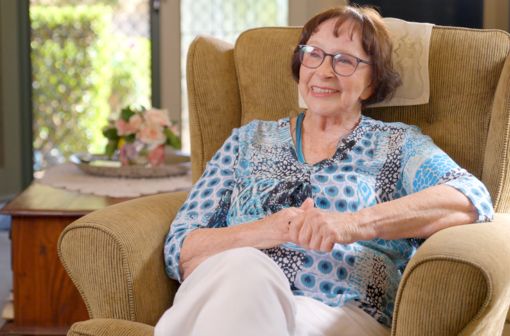Tags: Community & relationships Relationships Future security Standard of living Retirement
“There’s a real difference between the sort of lifestyle that you’re going to have as a fully or semi-funded retiree versus somebody who’s purely reliant on government support.”—Matthew Ricker, CEO, Australian Unity Bank
Key points
- Your parents will likely need to factor care and, potentially, new accommodation into their post-retirement financial planning. The sooner they start planning for this, the better.
- There are numerous ways that your parents can manage their finances, depending on their situation and needs, including downsizing and reverse mortgages.
- Consulting an independent financial adviser can help your parents understand their options, and to work out what their future costs may be. This can make a material difference to their long-term lifestyle, accommodation and care.
When we’re dreaming of how we’re going to spend our hard-earned cash in retirement, paying for extra support and care, or maybe a different place to live, is unlikely to be top of mind. After all, no-one wants to think they may become less healthy, mobile or independent than they are.
But ageing happens even to the best of us, and our research into the wellbeing of Australians tells us that the state of our finances can affect how content we are in our golden years. Talking to your parents about their financial plans now, while they’re relatively fit and healthy, can help to smooth the way for any hard decisions you may have to make later on down the track.
From helping your parents manage their biggest asset to getting the right financial advice, the CEO of Australian Unity Bank, Matthew Ricker, and performer, author and host of ‘Parenting Up with Australian Unity’, Jean Kittson AM share the key considerations for funding post-retirement care, and explain why ignorance isn’t bliss when it comes to money.

The importance of planning ahead
The care your parents receive later in life, as well as where they live, will be heavily influenced by what they can afford, so it’s extremely important to make sure they factor these costs into their long-term plans at retirement.
Don’t worry—they won’t end up on the street or without care if they don’t have enough saved. But, as Matthew explains, proper financial planning will certainly give them more choice.
“It’s not that there aren’t safety nets, [in Australia] we do have them,” he says. “But there’s a real difference between the sort of lifestyle that you’re going to have as a fully or semi-funded retiree versus somebody who’s purely reliant on government support.”
“It’s so important for people to get good advice and to really understand the options that are available to them.”
— Matthew Ricker, CEO,
Australian Unity Bank
It’s best to have these conversations with your parents well in advance, so that everyone has time to wrap their heads around the different costs and options, particularly when it comes to accommodation. For example, Jean tells the story about her elderly parents downsizing their living situation and selling the family home before they had decided where they wanted to live.
“We were under this time constraint and running around—there’s so many different sorts of retirement villages, so many different costs,” says the author of We Need to Talk About Mum & Dad. “All this takes time, so it’s quite important to have these conversations early on.”
Sign up for wellbeing news
Get real wellbeing news, information and tips straight to your inbox.
Tips for post-retirement finances
There are many different options for managing our money as we age. While every individual’s situation is unique, Matthew has a few general tips to share:
- Many people have their wealth tied up in their family home, so it's important that your parents aim to pay it off before they retire.
- Reverse mortgages, sometimes called "equity releases", now have more oversight and better regulation, which potentially makes them a valid option for people who are asset-rich and cash-poor, who want to stay in their own home but need some extra funds to do so. This approach might be appropriate if one of your parents needs to go into care and the other doesn’t; if they need to free up some funds to pay for extra support or modifications around the home; or if they want to stay in a bigger home but need some extra income to keep up with the maintenance.
- Downsizing, or “rightsizing” as it’s sometimes called, can free up extra capital when your parents are ready to move into a lower maintenance property—but be wary of “burning money” on stamp duty if you think you might relocate again within a few years. Matthew says his mother moved directly from her home into a retirement community to minimise this cost.
- Retirement communities can have several different pricing models, so look at contracts closely to understand what cost structures are involved and whether they work for you.
.jpg)
Start by consulting an independent financial adviser
Because there are so many different options and everyone’s situation is unique, the best thing you can do is “help your elders get an independent adviser to lay it all out for them,”, says Jean.
Financial planners aren’t just for the wealthy, she stresses, and their advice need not be expensive—but it can be invaluable, since “aged care is full of complex financial decisions”. A professional can help your parents explore what their post-retirement lifestyle might look like, what benefits they might be entitled to and how to claim them, and at what points they may need to free up some cash.
“I’m a very big advocate of financial advice because I think it can create a material change in your wealth situation when you hit retirement," says Matthew. "The way that you set yourselves up, what you have in super, what you might have outside of super—all of these things matter as to what you might be able to get a part pension or concessions on things.”
“I’m a very big advocate of financial advice because I think it can create a material change in your wealth situation when you hit retirement.”
—Matthew Ricker, CEO,
Australian Unity Bank
Having the family sit in on these discussions can minimise conflict, suggests Jean, as everyone will understand why certain decisions have been made.
“We’ve all got biases and objectives, whether they’re conscious or subconscious,” agrees Matthew, and “while we might go into those conversations with the best interests of our parents at heart, do we really actually know how to have a conversation about what [they] really need?” This is why “it’s so important for people to get good advice and to really understand the options that are available to them,” he says.
The key takeaway from Jean and Matthew? It’s all about helping our parents keep their options open as they age—that’s especially true when it comes to their finances.
Disclaimer:
Information provided in this article is of a general nature. Australian Unity accepts no responsibility for the accuracy of any of the opinions, advice, representations or information contained in this publication. Readers should rely on their own advice and enquiries in making decisions affecting their own health, wellbeing or interest.


